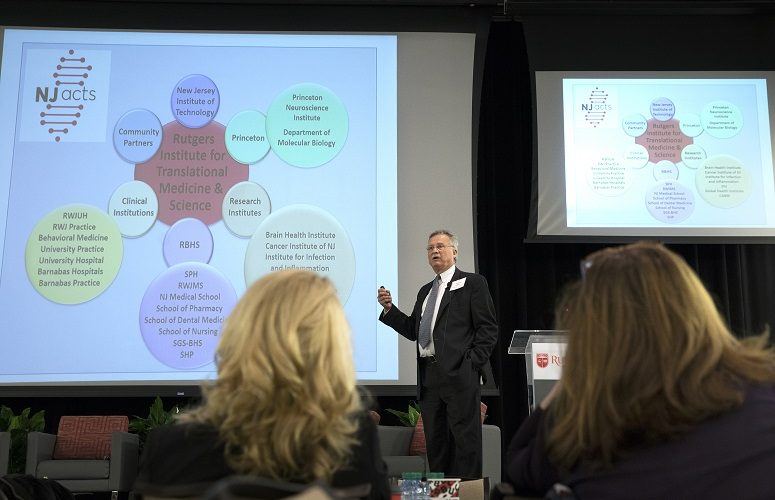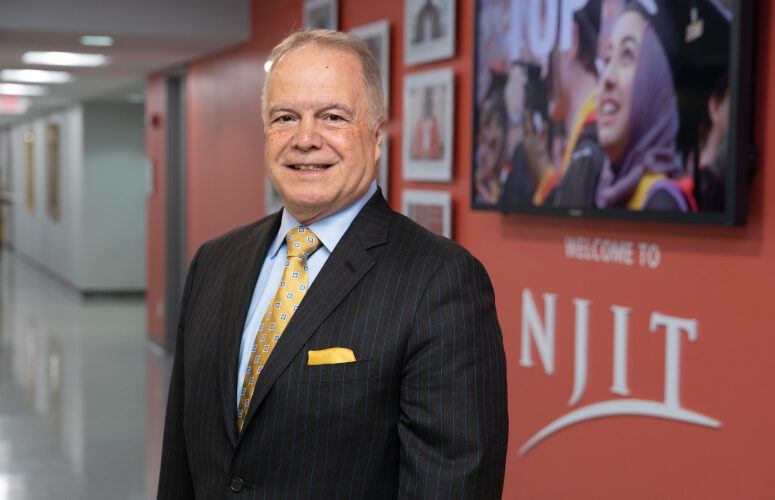
How $29M Grant Facilitates Translational Medicine in NJ
By George N. Saliba, Managing Editor On Dec 5, 2019The Rutgers Institute for Translational Medicine and Science – which includes the New Jersey Institute of Technology and Princeton University – today officially celebrated receiving a $29 million grant last March from the National Institutes of Health (NIH) for becoming part of the NIH’s Clinical and Translational Science Awards Program. Total funding over the next five years swells to approximately $45 million when the local institutions’ own, voluntary financial commitments are included.
The clinical and translational program, known as “NJ ACTS: New Jersey Alliance for Clinical and Translational Science,” ultimately seeks to improve patient care and treatments.
In partnership with the hospital system RWJBarnabas Health and others, it will not only improve clinical trials and advance bioinformatics, but – among additional aims – train and cultivate translational scientists.
“Every aspect of translational research takes discoveries and translates them into human patients [in order] to change guidelines and [healthcare] payer approaches to the management of disease,” Reynold A. Panettieri, vice chancellor for Translational Medicine and Science, and director of Rutgers Institute for Translational Medicine and Science, told the audience at today’s Livingston Campus event.
With supercomputers leveraging data analytics, the global scientific community today increasingly comprehends the intersection of both disease variation and patients’ genetic and other differences.
“There is heterogeneity of disease and heterogeneity of therapy, and we recognize that the pharmacology of how your body reacts to a medicine is quite complex,” Panettieri explained.
He added, “As we develop more biomarkers – indicators of therapeutic response before you get the medicine – we diminish adverse effects and improve outcomes. … We think we are going to make [precision medicine] a little more granular, and actually bring it home to improve care.”
However, in order to actually receive the medicines, payers must provide resources, and – among other considerations – social determinants such as diversity and poverty must be addressed.
RWJBarnabas Health President and CEO Barry Ostrowsky meanwhile noted his system’s involvement in the alliance: “We will be able to offer our patients the ability to participate in trials, which is something unique. For us, this is not only a game-changer; this is integral and critical to our ability to attain the mission of making New Jersey a healthier state. One by one, we actually treat five million people [each year].”
Rutgers University President Robert Barchi reminded the audience about the discovery of streptomycin some 75 years ago in a collaboration between New Jersey Agricultural Experiment Station (Rutgers University’s) Selman Waksman and the pharmaceutical company Merck.
Barchi said, “[The Rutgers Institute for Translational Medicine and Science] and this New Jersey alliance have the potential to be an exponential multiplier for that sort of thing. It is a collaboration not just within Rutgers, the academic community, and biotech developers of New Jersey – but also within the health system that covers millions of lives in this state.”
“With many of the providers throughout the state, it sets up an optimal environment for the development and translation of new discoveries – as we like to say – from the bench to the bedside…”
Barchi cited an additional benefit of attracting “new talent” into the institutions.
Panel discussions titled “The Nexus Between Industry & Academia Leads to Discovery” and “Closing the Gap: Solutions for Unmet Healthcare Needs in New Jersey” also were included in today’s program.
To access more business news, visit NJB News Now.
Related Articles:





